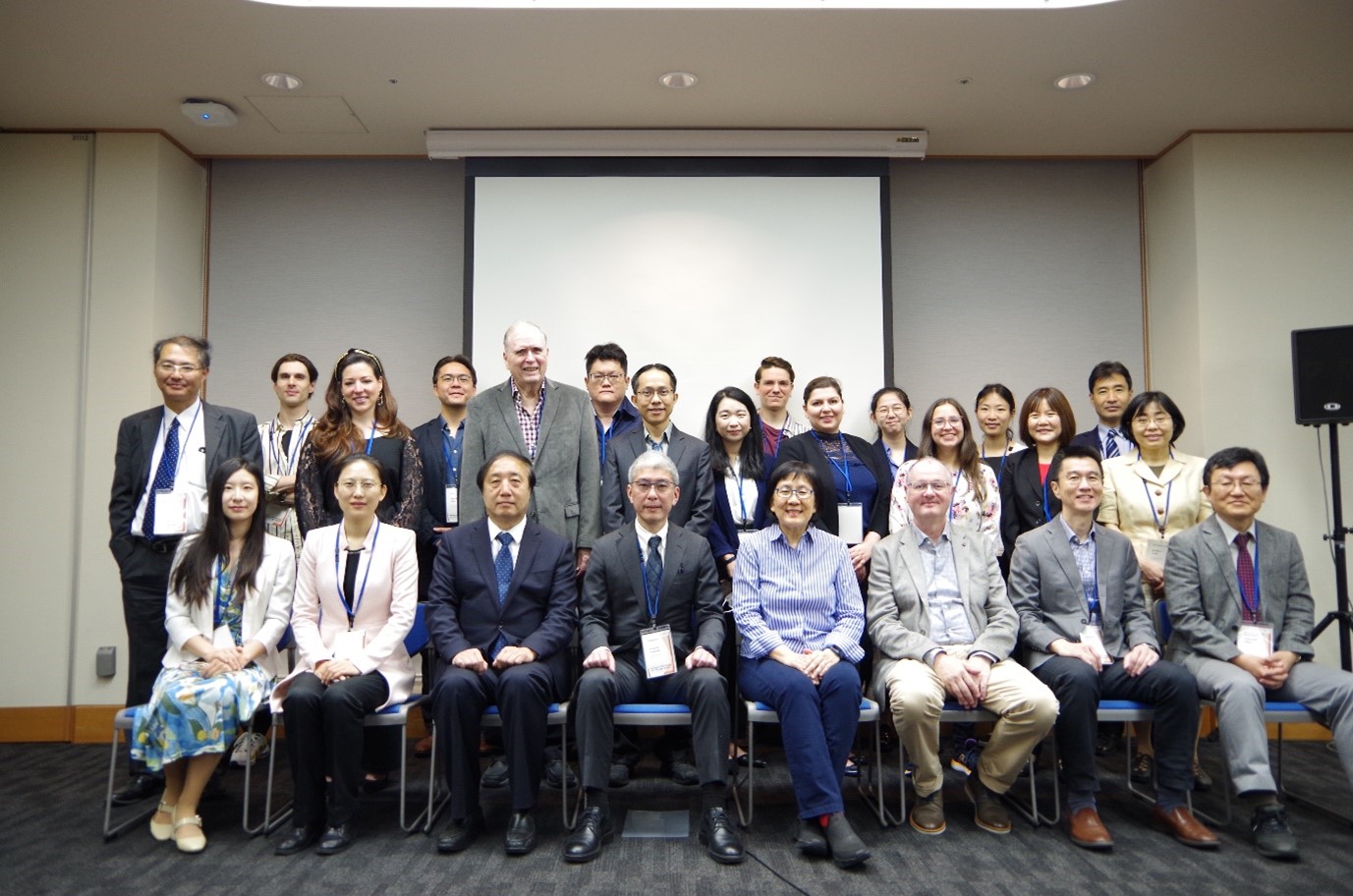
The recently concluded Inaugural Annual SIGMA Research Symposium 2023 was hosted by Hitotsubashi University (HU) on the 11th and 12th of May 2023 on their Chiyoda campus in the heart of Tokyo, Japan. It was a joint event that also included the 19th International Conference on Pensions, Insurance and Savings, organized by the Universite Paris Dauphine PSL and HU. As part of the SIGMA (Societal Impact and Global Management) Alliance, The Centre for Research on Successful Ageing (ROSA) was invited to co-organize as well as participate in this exciting symposium with the theme “Ageing and Well-being over the Life Course”.
35 presentations by researchers from over 25 institutions across the world were given both in-person and virtually throughout the symposium covering various topics related to well-being over the life course. Presentations spanned four key dimensions of well-being - the economic, mental, physical and social – and sought to identify and discuss the key determinants of well-being across the life course.

- “Economic expectation, subjective well-being & consumption levels” - Wong Yen Cong, Research Assistant
In this presentation, the influence of economic expectations on the subjective well-being and consumption levels of middle-aged and older adults was explored within the context of rapidly rising inflation rates and costs of living in Singapore. Specifically, the research aimed to answer the following questions:
- What are the factors associated with pessimistic economic expectations?
- How are economic expectations related to life satisfaction?
- How are economic expectations related to household consumption levels?
Key findings included that negative economic expectations were found to be correlated by lower levels of life satisfaction, and that negative expectations were also associated with greater consumption of non-durable goods in certain cases. This was possibly attributed to the tendency for middle-aged and older adults to make necessary big purchases before prices of such items are expected to rise. Overall, this research makes significant contributions towards understanding how best to support middle-aged and older adults in light of economic crises, as well as in understanding their economic behavior during such situations.
- “Spousal life satisfaction and individual health condition” – Lanjie Wang, ROSA PhD Scholar
This paper examined the impact that health shocks, such as being diagnosed with a chronic disease, can have on the life satisfaction of middle-aged and older adults and their spouses over time and across multiple domains of satisfaction. Using an event study design framework, it was found that both the middle-aged or older adult that was diagnosed with a chronic disease and their spouse (if married) experienced substantial declines in their overall life satisfaction, health satisfaction, and economic satisfaction. Levels of satisfaction of spouses of patients were found to recover over approximately six months, while patients themselves took twice the time to recover. This research highlights the important fact that the impact of health shocks on well-being are not just experienced by the middle-aged and older adults who receive the diagnoses but can have very real impacts on the well-being of their loved ones as well. This is a critical point to be cognizant of, especially in designing policies to help family members cope with caregiving responsibilities.
- “The effects of social and physical neighborhood characteristics on social well-being among middle-aged and older adults” – Paulin Straughan, Professor of Sociology (Practice) and Director of ROSA
This presentation discussed exploratory and initial findings from a study on the social well-being of middle-aged and older adults in Singapore. While significant attention has been paid to the physical, economic, and psychological well-being of middle-aged and older adults, social well-being has been neglected as a dimension of well-being in the literature, especially within the Singapore context. This research thus presented overall distributions of social well-being as defined by Corey M. Keyes, and examined how the neighborhood and social environment shape social well-being among middle-aged and older adults. Key findings included that the availability of green spaces such as parks had the greatest positive impact on social well-being among amenities, and that the frequency of digital contact had the greatest positive impact among social activities. Social well-being was also highlighted as a key mechanism and point of intervention for efforts to increase the mental well-being of middle-aged and older adults in Singapore.
- “Enhancing older adult resilience through social networks: an examination of social support and network size” – Grace Cheong, Research Associate
Resilience is a key resource that middle-aged and older adults can rely on to weather the negative effects that stressors can have on older adult well-being, including experiencing events like the COVID-19 pandemic. In this light, this presentation discussed research aimed at understanding how social support and social network size can shape levels of psychological resilience among middle-aged and older adults. In particular, it examined the hypothesis that not only receiving social support, but giving social support can be an important mechanism through which the social network can shape resilience among middle aged and older adults. Key findings included that providing social support to others did in fact significantly and positively predict levels of resilience, and that giving and receiving social support accounted for almost half of the effect that the social network can have on levels of resilience. These findings provide important context for understanding how best to ensure that older adults who may be more socially isolated can be supported in terms of their resilience – in particular, by providing these individuals with other sources of social support, as well as opportunities to provide support to others.
- “The importance of social network resources in supporting healthcare utilization among middle-aged and older adults” – Micah Tan, Research Associate
Given the importance of rates of healthcare utilization in ensuring that preventive healthcare responses to an ageing population are effective, this presentation explored how social and physical factors jointly interact to shape levels of healthcare utilization among middle-aged and older adults in Singapore. Specifically, the study examined if the availability of a clinic or hospital within 10-minutes walking distance from the household may modify the influence that social factors can have on rates of healthcare utilization. Findings from the study revealed that clinic availability did in fact modify the influence that social factors can have. In situations where clinics were available nearby, being more socially integrated had a moderately negative effect on healthcare utilization, whereas when clinics were not available, being more socially integrated had a strong positive effect on healthcare utilization. These findings were attributed to the different roles that social networks can play in situations where healthcare accessibility is high, compared to when healthcare accessibility is low. Overall, this research supports the idea that social interventions to increase healthcare utilization among middle-aged and older adults should be targeted at the appropriate audience in order to be most effective.
All in all, the ROSA team found the symposium to be very productive and appreciated the new perspectives that researchers from other institutions and countries could provide on their research through the various presentation and panel sessions. Professor Paulin Straughan, Director of ROSA, commented that “ROSA is glad to be a member of such a meaningful network of researchers and institutions that have a similar focus in their research”, and that “opportunities for ROSA to share our findings that are based on empirical, data-driven insights made possible by the Singapore Life Panel (SLP) will always be welcome. We are also extremely grateful for the contributions of our SLP members that make such research possible. Even on an international level, the high-quality data we receive from the SLP is unparalleled and greatly admired, a fact that we are very appreciative to our respondents for.”
The ROSA team would like to thank our generous hosts at HU for organizing such a wonderful conference. We eagerly look forward to the next Annual SIGMA Research Symposium!